Best Human Rights Books lists from previous years: 2017; 2016 and 2015. This year for the first time, the Best Human Rights Books list is published quarterly. This is the third quarterly list of 2018 – see the first two from April and July.
The ten books on the list are about and/or set in Algeria, Australia, China, Egypt, Russia, Syria and the United States. There is only one fiction book, an unusually low number compared with past lists; the rest are nonfiction.

The featured titles deal with the following human rights issues: activism and nonviolent struggle, arbitrary detention, freedom of assembly, children’s rights, democracy and dictatorship, crimes against humanity, elections (rights to vote, to be elected, and to participate in government), equality, extrajudicial killings, freedom of expression, the right to food and water, the right to health, human rights defenders, migrants’ and refugees’ rights, poverty, prisoners’ rights, racism and discrimination, sexual violence and harassment, war crimes, women’s rights, and workers’ rights.
Below the list of ten books, there are 17 other notable books that I have not had the chance to read but, if I had, would probably have made the best-of list.
Most of the titles were published in the third quarter of 2018, from July through September, with the exception of four from earlier in 2018. All publication dates are for the U.S. editions. Publication dates other than those within the July-through-September period are noted below.
All book links below bring you to the Book Depository’s website. Buy a book through a link and 5 percent of the order will go to the non-profit Hong Kong Free Press which publishes high-quality, fully independent journalism on Hong Kong and China, a very worthy cause.
The list
Brothers of the Gun: A Memoir of the Syrian War, Marwan Hisham and Molly Crabapple (One World) published in May
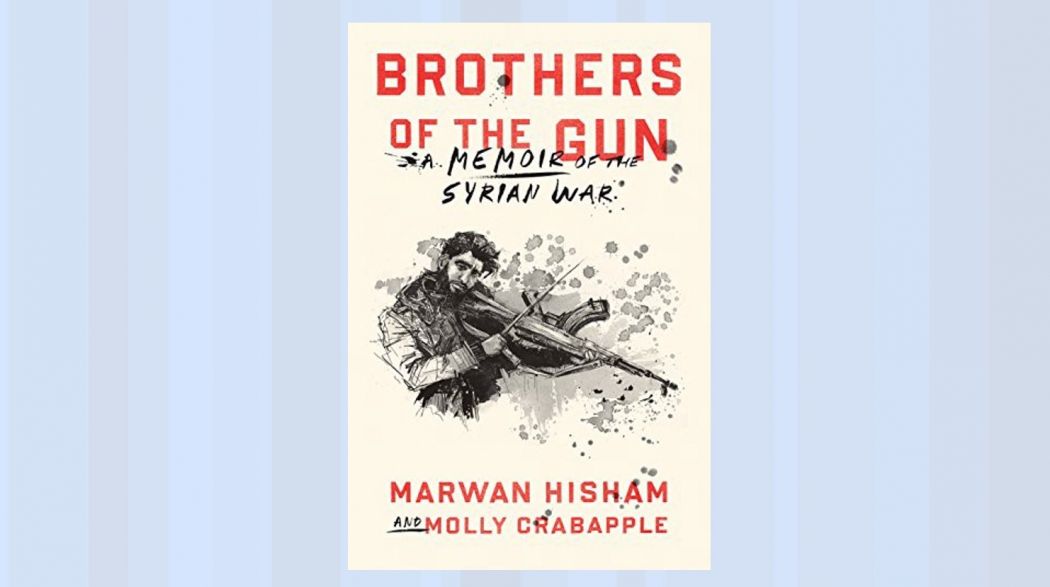
In the past five years, I’ve read half a dozen books on Syria, all very good in their own right, but this is the first by a young Syrian describing his experience of uprising and war. It’s also the first about living under Islamic State rule in Raqqa, Marwan Hisham’s hometown.
His story is immediate, passionate and forthright. Like many other Syrians, Hisham was a great believer in the initial uprising against the Assad dictatorship and deplores what has become of his country since.
His story gives a sense of how it spiralled into multi-front war, showing the ever-increasing influence of armed Islamist groups and their inclination to fight each other as much as if not more than Assad.
The fates of two of his close friends illustrate just what that history has meant in terms of human consequences.
He also goes back in time to his five years of religious education while growing up as well as his time studying English at university in Aleppo. When the IS takes over Raqqa, Hisham decides to stay, eventually opening an internet cafe where most of the patrons are IS Brothers.
His profiles of them are the most darkly comic episodes in the book. Hisham met Molly Crabapple on Twitter. They forged an unlikely and fruitful collaboration. Crabapple’s drawings greatly enhance the book.
Other books may provide better history and context on Syria, and Rania Abouzeid’s excellent No Turning Back from earlier this year gives a panoramic overview of the conflict by following the course of the lives of several people from different backgrounds, but Hisham’s story gives as vivid a sense as any of what it has been like to live through it.
Into the Hands of Soldiers: Freedom and Chaos in Egypt and the Middle East, David D. Kirkpatrick (Viking)

Kirkpatrick was the New York Times correspondent in Cairo at the time of the Arab Spring. His telling of the uprising, the election of the Muslim Brotherhood and their overthrow by the army is sharp, evocative, pacy, vivid and expansive.
There are chapters on Libya and Tunisia as well, but Egypt is definitely front and centre. Being a NYT reporter gives him some access to the elites; he tells their stories but clearly takes the side of the masses.
Most of the books on the Egyptian uprising I’ve read up to now have focused on the activists, both the liberal secularists and the Islamists. This gives attention to them as well, but is perhaps most valuable for its focus on higher level politics, especially inside the Muslim Brotherhood, Mohamed Morsi’s office, the military, the courts and the Obama administration.
The book has had some media coverage for what it reveals about the behind-the-scenes thinking in the Obama administration, whose response to the Arab Spring in general and the Egyptian uprising in particular was in my opinion atrociously poor and ineffectual, an opinion only reinforced by this book.
With the US administration riven by a conflict between the centrist old-timers who sided with Mubarak and then the Egyptian military, and the newcomers who argued Obama should stand strong with the uprising, the Egyptian military knew it could play Obama, and did.
Woefully, Obama even refrained from calling the military’s overthrow of Morsi a coup.
The book is compelling throughout but really excels in its depiction of the period from the coup through the army massacre of 1,000 Muslim Brothers at Rabaa and onward.
Nobody has written better about the tragedy of the coup for Egypt and the Arab world, and I agree with Kirkpatrick that it was madness for the revolutionaries to advocate the overthrow of the elected Morsi government by the military, however ineffectual and authoritarian Morsi became.
What resulted was a dictatorship far worse than Mubarak’s, with upwards of 30,000 political prisoners — the most in the world — and an Islamist insurgency in the Sinai that’s killed thousands of Egyptians and provoked a secret air war from Israel.
The toleration of the coup sent a signal that the US wouldn’t back the Arab Spring, contributing to the breakdown of the political process and civil war in Libya; the same in Yemen, resulting in a proxy war and an invasion by Saudi Arabia; and the isolation of the pro-democracy movement in Syria.
And on just about every indicator, Sisi’s done far worse than the mediocre Morsi, of whom Obama administration officials were so critical, on top of which he’s imposed drastic restrictions on civil and political liberties and increased the economic might of the army, all while continuing to receive $1.3 billion in aid from the US. And we wonder why democracy in the world is under threat!
No Friend But the Mountains: Writing from Manus Prison, Behrouz Boochani, translated from the Farsi by Omid Tofighian (Picador Australia)

This book may join the ranks of prison memoir classics. It is certainly different from any other I’ve read: It was written on a mobile phone and smuggled out of prison via WhatsApp.
Along with hundreds of others, Boochani has for more than five years been a detainee at an Australian prison on Manus Island, which belongs to Papua New Guinea. Their “crime” was attempting to enter Australia by boat to seek asylum.
The treatment of these asylum seekers by the Australian government is grotesque and dehumanising, showing the depths to which democratic governments will stoop to discourage unwanted immigration. Indeed, the treatment is based on the discriminatory perception that these people are not human beings like any others, like Australians for example.
The Minister of Immigration actually visited Manus and told the detainees there was absolutely no chance of them ever getting into Australia; their only option was to request voluntary repatriation. How can you tell that to asylum applicants whose applications you have not processed and who claim to face persecution or worse if returned home?
The first third of Boochani’s book tells of the harrowing, near-fatal sea journey from Indonesia and eventual apprehension/rescue by the Australian navy. The rest is an up-close account in alternating surreal and mythic modes of life in Manus prison, from filthy toilets and inedible food to brutal guards and profiles of fellow detainees, most of whom show signs of deteriorating mental health.
The immediacy and intensity capture the experience of someone enduring indefinite detention without trial in a remote place under poor conditions, and that is its main objective: to give the reader a clear sense of what it’s like, not to present context or explore the political ins and outs of the detention policy.
At bottom, the book is an examination of the psychology of what Boochani labels the Kyriarchal System, essentially meaning the various regimes in place to ensure the degradation of the prisoners as human beings, to humiliate them and to incite them to fight one another in the competition for a clean toilet, a phone call, a place in the food queue.
The Kyriarchal System of course is related to the overall injustice of the policy which places the state’s prerogatives above individual rights and is in turn rooted in a kind of racism that Australia should know all too well in light of the legacy of its treatment of indigenous people.
Boochani has also collaborated on a film documentary, “Chauka, please tell us the time”. An enlightening statement about the book from its translator.
Betraying Big Brother: The Feminist Awakening in China, Leta Hong Fincher (Verso)

This is by far the most complete account yet of the story of the Feminist Five, who were detained for several weeks in 2015 for planning to hand out anti-sexual harassment information on public transport on International Women’s Day.
Hong Fincher not only details their mistreatment in detention and the continued harassment and surveillance both they and their families have faced after their conditional release; she also delves into their backgrounds, including what led them to become feminists and activists.
The focus on them expands to a portrait of feminism in China today and includes a useful chapter surveying the history of feminism in China over the past century. The book does the valuable service of introducing the feminist movement in the world’s biggest country to the rest of the world.
Indeed, while international attention and pressure played a key role in the Feminist Five’s release without trial, I find Western feminism — for all its dynamism — can often be exceedingly insular, and anything that promotes international understanding and solidarity among feminists is welcome and necessary.
Hong Fincher incisively characterises the Communist regime as patriarchal and authoritarian, inherently hostile to full gender equality. The book is strikingly upbeat in tone, based on the fact that the feminists’ main campaigns against discrimination and sexual violence and harassment resonate widely, especially among young urban women.
But Li Maizi, one of the Feminist Five, expects it could take decades before substantial progress is made. That, of course, goes for the struggle for democracy and human rights in general in China.
A Terrible Country, Keith Gessen (Viking)

Fun, engaging, charming, humorous and compelling, this novel is a great snapshot of the state of Russian civil society circa 2008; by most accounts, it’s only gotten worse since.
A hapless young American academic returns to Russia, from which his family emigrated when he was young, in order to look after his grandmother whose health is deteriorating and to, perhaps, further his floundering academic career.
He ends up playing hockey, his great passion, as well as involved with a bunch of activists. That latter plot thread leads to the climax.
His relationship with his grandmother is the story’s poignant centre of gravity. Moscow appears as a place where violence is an ever-present possibility— it could erupt at any moment, and it lurks in political history and the DNA of the current regime.
As one article puts it, “The city is violent, and entombed within it is a history of violence. Government purges and NKVD torture chambers have given way to gangster thuggery and casual street beatings.”
My one beef is that of all the activists Gessen could have chosen, he settles on a group of socialists. They are lovable idealists, but why not a group that is a little more with-it and perhaps has a bit more to offer in terms of responding to the current political moment?
There are plenty of those. Choosing socialists has the effect, which one finds far too often in fiction these days, of making activists seem lightweight and irrelevant, not really presenting a possible solution but simply as deluded as everyone else. Yes, the novel is comic, but on that count at least, it should have taken itself more seriously.
What the Eyes Don’t See: A Story of Crisis, Resistance, and Hope in an American City, Mona Hanna-Attisha (One World) published in June

This is one of the best books on health and human rights since Helen Epstein’s The Invisible Cure: Africa, the West and the Fight Against AIDS and David France’s How to Survive a Plague: The Story of How Activists and Scientists Tamed AIDS.
Hanna-Atisha is a doctor in Flint, Michigan who ended up being a key player in forcing the negligent, culpable city and state governments to recognise the lead-polluted water crisis. Her story is inspiring, not least because it’s a success story.
Eventually, top government officials admitted that most of what a wide range of people had been asserting all along was true. Flint’s water source was changed back to what it was before. Some officials face criminal charges.
While the focus is kept on her role as a doctor, especially to mothers and children, and the water crisis, Attisha sets the story in wider contexts. She tells of her crusading heroes, Alice Hamilton, Frank Murphy, and Genora Johnson Dollinger, as well as her background as a Chaldean Iraqi, her family’s immigration to the US, and their life in Michigan as the fulfilment of the American dream.
Also included is interesting background on lead poisoning, public health epidemics going back to the 19th century and how they were fought, and Flint history, including its legacy of racial segregation.
Ultimately, the Flint water crisis is a story about how the brew of poverty, inequality, racism, and deficits in democracy and accountability led to the citizens of Flint, in one of the most water-rich states in the country, being exposed to water-born lead poisoning, an entirely avoidable catastrophe.
The Poisoned City: Flint’s Water and the American Urban Tragedy, Anna Clark (Metropolitan Books)

The sub-title nicely captures this book’s focus. While Hanna-Attisha’s book focuses primarily on health and children, Clark regards the Flint water scandal as a parable for the under-investment in U.S. cities over recent decades. Unsurprisingly, that hits the most vulnerable the hardest.
“Flint sat atop a teetering tower of debt, dysfunctional urban policy, disappearing investment, disintegrating infrastructure and compromised democratic process.” says Clark.
She calls Flint “ a crisis of systems”: “The chronic underfunding of American cities imperils the health of citizens. It also stunts their ability to become full participants in a democratic society, and it shatters their trust in the public realm. Communities that are poor and communities of colour — and especially those that are both — are hurt worst of all.”
In other words, it wasn’t just a health crisis but a crisis of democracy and equality. “Flint’s story is a clear call for committing anew to our democratic faith in the common wealth…. For all the inefficiencies and messiness that comes with democracy, the benefits — transparency, accountability, checks and balances, and the equitable participation of all people — are worth it.”
The Line Becomes a River: Dispatches from the Border, Francisco Cantú (Riverhead Books) published in February

After university, Cantú decided to join the US border patrol, ignoring his mother’s warning about how the system might affect him: “stepping into a system doesn’t mean that the system becomes you,” he tells her. That is the assertion Cantú’s story puts to the test.
Much of its first part is about Cantú’s experience in the border patrol. Indeed, though he’s considered a bright young prospect, he eventually leaves it because of the emotional strain of his ambivalence about what he’s doing and about the wider system, which often appears abusive and uncaring.
In the latter part of the book, after leaving the patrol, Cantú attempts to help a man he met at work. The latter returns to Mexico to be with his dying mother, but then, when he tries to come back to the US where his wife and three children (all US citizens) are, he is caught, detained and deported because he’d lived his many years in the US undocumented.
The story stops where policy must start, and in that sense, has a tragic aspect that I believe doesn’t necessarily have to be the case. Any kind of humane, coherent immigration policy that respects human rights must have at its core compassion for all concerned.
This means, among other things, taking into account the various motivations for immigration, both documented and undocumented, as well as the interests of the citizens of the country to which they come.
The writing is excellent, but the book has taken some knocks from immigrants who feel it gives too much attention to the villain’s perspective. This I find strange; surely that’s a perspective we must understand as well, and there are certainly many accounts from the immigrant perspective which this does not displace. Two useful reviews.
In a Day’s Work: The Fight to End Sexual Violence Against America’s Most Vulnerable Workers, Bernice Yeung (The New Press) published in March

This book focuses on women in in some of the most vulnerable types of work in the U.S., janitors (especially night-shift janitors), farm workers and domestic workers.
Many of these women are immigrants and/or people of colour; all are low-income. The book began as a reporting project in close affiliation with organisations that support women who have suffered sexual assault in the workplace.
Not only does it show a deep solidarity with them, but they and the people in the organisations who support them are the clear heroes of the tale.
Some of the most compelling parts of the book focus on two important court cases, one brought by the government against a large apple producer in eastern Washington, and a criminal case against a foreman in California for sexually assaulting a farm worker.
In neither case did the plaintiff win, but the cases had positive knock-on effects in terms of improving protections for vulnerable workers. US courts are notoriously inhospitable places to people making accusations of sexual violence, wherever it occurred: less than 4 percent of reported rapes are prosecuted, and only 2 percent of reported rapes result in felony conviction.
One of the highlights of the book is its focus on the successes of those campaigning for better rights and protection for vulnerable workers. Eight states now have a Domestic Workers’ Bill of Rights, though domestic work was historically one of the least regulated areas of employment in the US.
The lives and struggles of some of the women who’ve been victims of sexual violence in the workplace are presented in detail: they persevere, and once they decide to take the huge risk of coming forward with their stories of having been assaulted, with the right support that often acts as the catalyst to growth for them as individuals, overcoming pain and shame and gaining greater confidence in their own agency, which in turn makes them effective activists. A good review.
Algiers, Third World Capital, Freedom Fighters, Revolutionaries, Black Panthers, Elaine Mokhtefi (Verso)
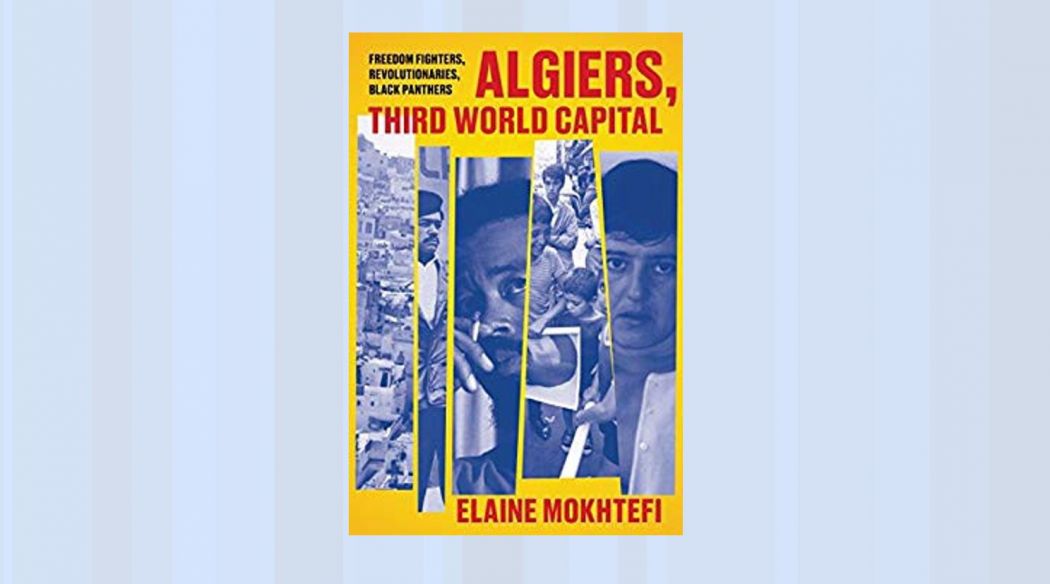
I’m something of a sucker for books about 60s radicals and revolutionaries. Among other reasons, it’s because there was a great tolerance if not enthusiasm for violence as a means to an end. As someone committed to nonviolence, I find the thinking behind such views repellent and fascinating.
Mokhtefi is a very sympathetic memoirist, and her book is beautifully written. Originally from the US, she found Algeria by way of Paris.
Now in her 80s, she looks back on her years in Algeria working for the post-independence government, and also for Black Panthers from the US who were given refuge there. To put it simply, she was surrounded by creeps.
The Algerian government became increasingly dictatorial, and the Black Panthers romanticised violence and were misogynistic, self-indulgent narcissists. So why did she keep working for them? Because of her commitment to opposing colonialism and racism.
Independence from colonial rule represented a chance for the improvement of human rights worldwide, but it hasn’t worked out that way: few of the states that gained independence then can be considered exemplary now when it comes to human rights and democracy.
What went wrong? Mokhtefi’s story provides insight. In that period when revolution was romanticised liberation groups flocked to Algiers and were given refuge by the Algerian government. Mokhtefi fell in with Black Panther Party exiles like Eldridge Cleaver.
From a distance, these people always struck me as mysogynistic, self-centred, narcissistic, deluded, even sadistic, and they certainly come off that way in Mokhtefi’s telling, with Mokhtefi herself often appearing almost masochistic and far too often willing to excuse their excesses.
Cleaver, who she works so hard for and basically saves on several occasions, ends up dumping her the moment she asks him for a favour he’s in a position to provide. Algeria repays her loyalty and dedication by banning her from the country, a ban that ends up lasting decades.
Mokhtefi largely lets the stories she tells stand for themselves. I would have liked a little bit more of a reckoning: How does she see things now? Why have so many Third World emanicipation projects turned out to be anything but, and what does she think of her commitment to them today, looking back, after all these years?
Looking forward, we could learn a lot from her answers. A good review.
Other notable books
All of the 17 books below could have ended up on the list above if I had got round to reading them.
Lights in the Distance: Exile and Refuge at the Borders of Europe, Daniel Trilling (Verso)

Up-close reporting on the lives of migrants in Europe. As one might imagine, not a pretty picture. Trilling has been covering the issue for a long time and knows it in intimate detail.
This review calls Lights in the Distance a “book of witness”, and it is that indeed, covering a broad swath of Europe, from Sicily to detention camps in Bulgaria, Greece, and Italy, to remote German towns. It is full of interviews with migrants.
Some stories are told in detail, such as those of Jamal, a young man from Sudan, Zainab, an Iraqi woman with two children, and Fatima, a Nigerian woman.
Dear America: Notes of an Undocumented Citizen, Jose Antonio Vargas (Dey Street Books)

A memoir by a journalist who has lived most of his life undocumented in the US. He arrived in the country from the Philippines as a 12-year-old.
In 2011, he “came out” spectacularly, against the advice of immigration lawyers, with a major article, “My Life as an Undocumented Immigrant”, in the New York Times Magazine. Much of his story here is about being torn between his Filipino relatives in the US urging him to stay hidden, and his own aspirations to assimilate and partake of the American dream.
He’s also made his own documentary about the issue, and the book covers much of the same ground as the article and film.
To quote Vargas in the blurb, “This is not a book about the politics of immigration. This book — at its core — is not about immigration at all. This book is about homelessness, not in a traditional sense, but in the unsettled, unmoored psychological state that undocumented immigrants like myself find ourselves in. This book is about lying and being forced to lie to get by; about passing as an American and as a contributing citizen; about families, keeping them together, and having to make new ones when you can’t. This book is about constantly hiding from the government and, in the process, hiding from ourselves. This book is about what it means to not have a home. After 25 years of living illegally in a country that does not consider me one of its own, this book is the closest thing I have to freedom.”
American Like Me, America Ferrera (Gallery Books)

Actor America Ferrera edits this volume with contributions from 31 others who, like her, grew up “between cultures” in the US, their families having recently come from somewhere else. They include playwrights, activists, writers, athletes and comics; what they have in common is that their achievements have been widely recognised.
While the essays take widely different tones, from the comic to the tragic, as a collection they are meant as a patriotic celebration of diversity, to assert that the America contained in these pages is worth fighting for, and, obviously, to insert itself into the charged political debate about immigration and diversity.
High-Risers: Cabrini-Green and the Fate of American Public Housing, Ben Austen (Harper) published in February

The backdrop of this book is the deep-rooted racism and housing segregation that pervaded the northern cities of the US, a topic that has received much less attention than the more blatant and violent racism of the South.
That has been changing recently with Ta-Nehisi Coates’s landmark essay, “The Case for Reparations” in 2014 and this year’s The Colour of Law: A Forgotten History of How Our Government Segregated America.
This book is less polemical but arrives at similar conclusions, and, by looking at the history of one of the most infamous housing projects in the country, Cabrini-Green of Chicago, goes a long way toward explaining the legacy of highly concentrated poverty and crime in urban neighbourhoods across the country where minorities are in the vast majority.
One Person, No Vote: How Voter Suppression is Destroying Our Democracy, Carol Anderson (Bloomsbury)
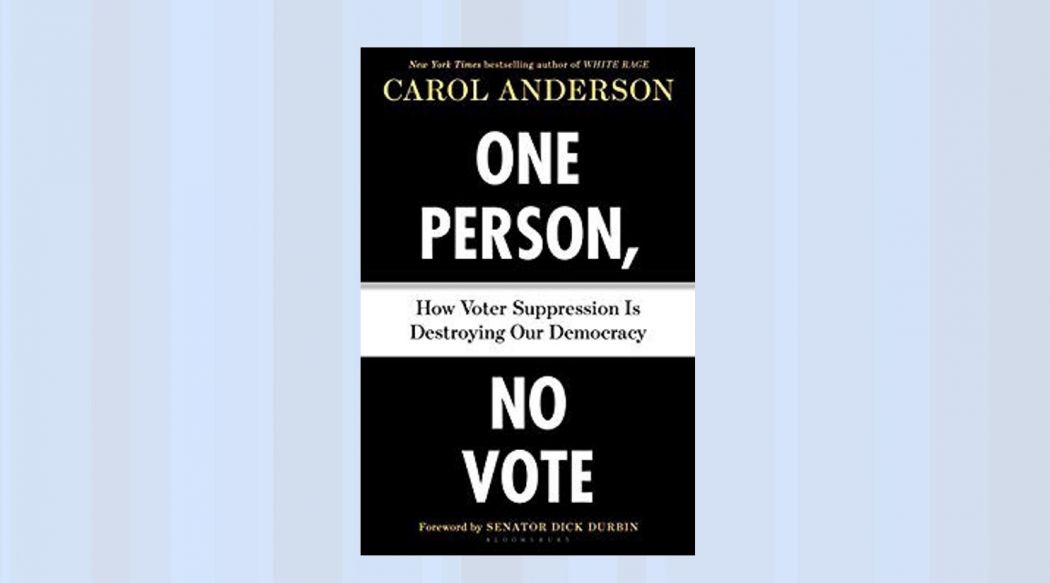
In the November 2016 US election, black voter turnout in the US election fell by 7 percent. It was the first election in 50 years to be held without the full protections of the 1965 Voting Rights Act, as the Supreme Court had repealed an essential part of the law in 2013.
This book is an overview of the various attempts by states to make it more difficult, especially for African-Americans and other people of colour, to vote. In addition to the book below, Ari Berman’s Give Us the Ballot made a similar case in 2015, though it looked more widely at attempts to infringe the right to vote, including gerrymandering and the role of money in elections.
The Embattled Vote in America, From the Founding to the Present, Alan J. Lichtman (Harvard University Press)

Compared with the two books above, this is the broadest history of attempts to infringe the right to vote. As Lichtman astutely points out, in fact, US citizens have no constitutionally guaranteed right to vote.
Indeed, the constitution vests control over elections with state and local officials, and so, throughout the country’s history, there have been widely varying degrees of protection and attacks on voting rights.
The book covers the original “white man’s republic” to blacks’ attempts to gain voting rights after emancipation to women’s attempts, the downturn in voting, and the Voting Rights Act as well as more recent battles and reforms.
How Democracy Ends, David Runciman

Since Trump’s election and Brexit, there has been a long line of books with downbeat titles like this one: Timothy Snyder’s The Road to Unfreedom, Madeleine Albright’s Fascism: A Warning, Yascha Mounk’s The People vs Democracy: Why Our Freedom is in Danger and How to Save It, and How Democracies Die, the last being by far the best of the bunch.
What they have in common is that they’re all written by classically liberal centrist Americans (or, in Mounk’s case, a US-based academic). One of the best reviews I’ve come across, “Is Democracy Really Dying?”, says about this trend, “…the warnings about imminent disaster ring with clarity but the obligatory summons to a better tomorrow comes out in a mumble.”
In other words, these centrist liberals are good at diagnosis, less good at prescription, partly perhaps because they don’t understand that the Clintonite/Blairite/Obamaist model may be part of the problem.
Painting Trump as the devil incarnate who embodies our worst fears can blind as much as illuminate. For anyone not American, the fact that democracy’s been facing significant challenges in recent years is not news, and it’s good Americans are waking up to this.
Runciman’s a Brit and part of the charm of his last book, The Confidence Trap: A History of Democracy in Crisis from World War I to the Present, is the humble claims he makes for democracy, along the lines of Churchill’s famous “least worst” argument: the good thing about democracy is it always finds some way of muddling through; it never fixes problems properly but it makes do. Here, he’s somewhat less sanguine.
The following two books probably have greater explanatory power about our present moment than the rash of “democracy in crisis” books above.
Crashed: How a Decade of Financial Crises Changed the World, Adam Tooze (Viking)

This book is really the first that not only analyses the past decade of financial crises but examines their political impact. In order to do this, Tooze goes back decades, to the 70s, when the current neoliberal economic paradigm shift began.
This is all the more interesting coming from a self-described left-liberal economic historian who has both the wherewithal and motivation to examine how neoliberal economic and financial paradigms of the last decades were central to causing the financial crisis.
One of the main reasons for its negative impact on politics has been the insufficient political response to the crisis, often on the part of some of the very same figures who played a role in bringing it about in the first place, such as Obama’s economic team.
Yes, they saved the economy, but they also saved the people who caused the crash and who are continuing to benefit enormously from the ever-increasing economic inequality which fuels the more extreme right-wing political responses to its long-term effects on society.
This is not a book about human rights but a book about why the political climate for the promotion of human rights and democracy has become more difficult.
Network Propaganda: Manipulation, Disinformation and Radicalization in American Politics, Yochai Benkler, Robert Faris, and Hal Roberts (Oxford University Press)
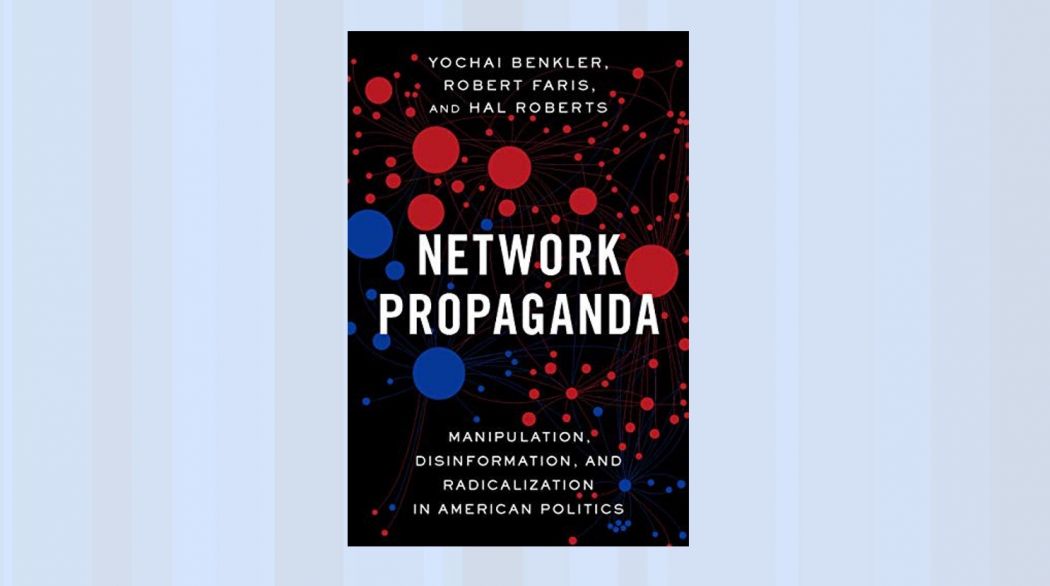
I’ve found much of the coverage of “fake news” and Facebook newsfeed algorithms to be under-substantiated. This book analyses massive amounts of data to conclude that the real culprit is what it calls the Right-Wing News Media Ecosystem, driven by a group of extreme sites led by Breitbart which managed to push Fox News even further right.
The books calls this the “radicalization of roughly one-third of the American media system”. As the blurb puts it, the book analyses “millions of news stories together with Twitter and Facebook shares, broadcast television and YouTube [to provide] a comprehensive overview of the architecture of contemporary American political communications.”
The Prison Letters of Nelson Mandela, Nelson Mandela and Sahm Venter (Liveright)

These letters are certainly of historical importance. Mandela didn’t use his prison letters in the same way as, say, Vaclav Havel in Letters to Olga (the best collection of prison letters by a titan of democracy and rights I’ve ever read) to explore his thinking and philosophy around the liberation cause.
Rather, most of these letters are occasional, and, of course, they are affected by prison censorship and a range of other factors that limited Mandela’s freedom to express himself as he might otherwise have wished.
What I find most interesting and illuminating in the collection are Venter’s introductions to the different sections into which the book is divided, referring to the prison, prison conditions and other relevant political circumstances behind that period’s tranche of letters in Mandela’s long incarceration.
Mandela’s autobiography, Long Walk to Freedom, remains a monumental literary achievement.
These Bones will Rise Again, Panashe Chigumadzi (Indigo Press) published in June

Chigumadzi is a young Zimbabwean-born writer who grew up in South Africa. In this short book, which is really a long essay, she reflects on the 2017 coup (what she calls “the coup that was not a coup”) deposing Mugabe and situates it in a larger historical context.
The partial overthrow of Mugabe invoked the legacy of the Chimurenga, or liberation struggle. When the book pursues this line, it is most enlightening.
The book takes on something of a mythical air when it situates recent events within the context of the struggles of Chigumadzi’s grandmother and the Mbuya Nehanda, the so-called grandmother of the nation.
Chigumadzi’s point is that the influence of women in the liberation struggle has been overlooked. That is undoubtedly the case but may, especially for non-Zimbabweans, somewhat obscure the recent events.
Always Another Country, Sisonke Msimang

The title refers to Msimang’s childhood, constantly on the move. Her parents were South African freedom fighters. She was born in exile in Zambia, and the family moved to Kenya, then Canada.
After the end of apartheid, she “returns” to her homeland for the first time, elated, only to become disillusioned with the country’s new elites.
This is a coming-of-age story, focusing on Msimang’s awakening political consciousness, not only about the freedom struggle back home but about the racism and xenophobia faced in the other places she lived.
A Girl Stands at the Door: The Generation of Young Women Who Desegregated America’s Schools, Rachel Devlin (Hachette) published in May
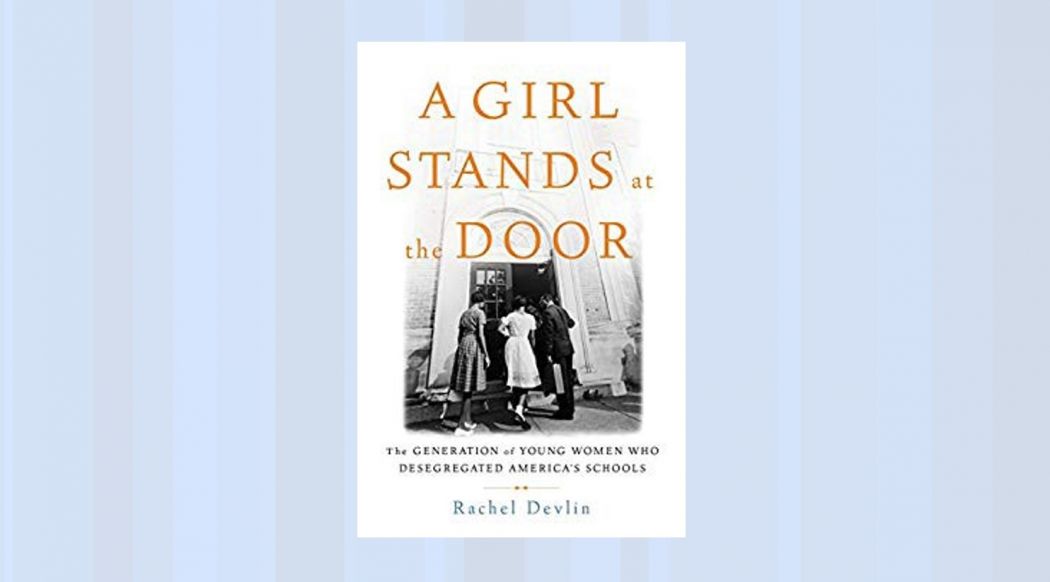
This book starts from a striking fact: The people who were in the forefront of the struggle to desegregate schools in the U.S. were disproportionately young women and girls. It asks, Why was that? While 1954’s Brown v Board of Education is the most famous of these cases, the struggle goes back to the 1940s and continues long after Brown.
To me the book is most interesting when profiling the individuals behind these landmark cases: Lucile Bluford, Ada Lois Sipuel, Esther Brown, all people I’d never heard of before and should know.
No Ashes in the Fire: Coming of Age Black and Free in America, Darnell L. Moore (Nation Books) published in May
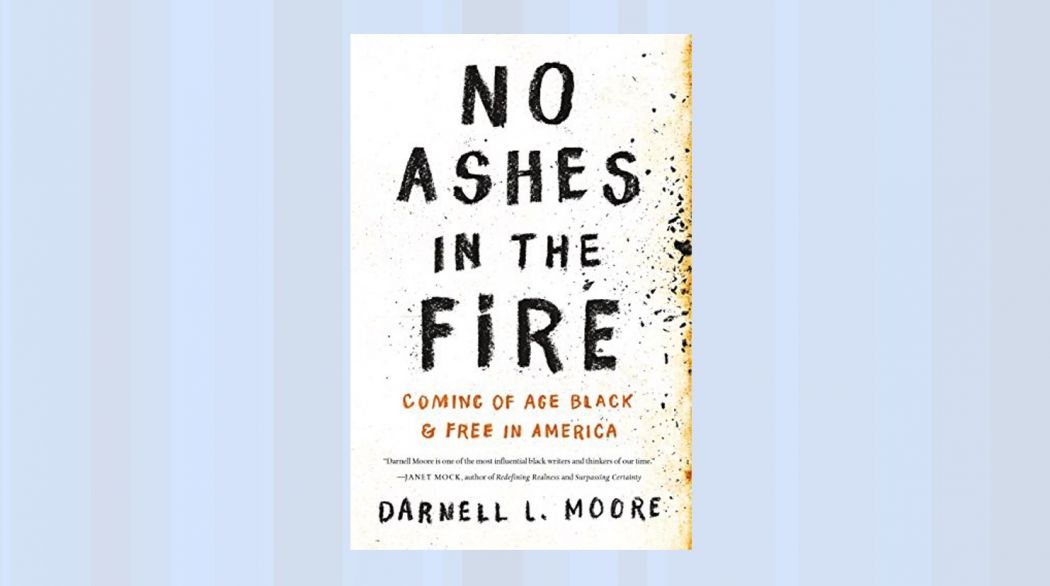
The sub-title may say something about the difficulty the publisher had in pitching the book.
It should probably read “Black and Gay and Free”, since the story has as much to do with Moore, a leading Black Lives Matter activist, growing up gay in an almost-entirely black and poor neighboorhood in Camden, New Jersey as with his struggles as a young black man.
To me, the particular interest here lies in his “double difference” and the battles he fought on both fronts to become the outspoken activist he is.
The Battle for Paradise: Puerto Rico Takes on the Disaster Capitalists, Naomi Klein (Haymarket) published in June

Klein has been for decades in the forefront of focusing on economic injustice in various places around the world.
This is her tract (about 100 pages long) on Puerto Rico, essentially applying to that island the argument originally made in The Shock Doctrine: The Rise of Disaster Capitalism.
Shortly after Hurricane Maria, she was invited to Puerto Rico by local activists, and this is her reporting on what she saw and experienced. All royalties from the book go to JunteGente, a group of Puerto Rican organisations “resisting disaster capitalism and advancing a fair and healthy recovery for their island”.
Give People Money: How a Universal Basic Income Would End Poverty, Revolutionize Work, and Remake the World, Annie Lowrey (Random House)

Universal Basic Income has been in the air for a while, and I’ve never been quite convinced about it. This is one of the best arguments in its favour I’ve come across.
As Lowrey puts it in the introduction, “A UBI is an ethos as much as it is a technocratic policy proposal. It contains within it the principles of universality, unconditionality, inclusion and simplicity, and it insists that every person is deserving of participation in the economy, freedom of choice, and a life without deprivation. Our governments can and should provide these things, whether through a $1,000-a-month stipend or not.”
The last bit is the catch: is UBI the best way to provide those things? Any argument for a policy that promotes social inclusion should be considered seriously. The mass social exclusion and dehumanisation of various groups that plagues so many societies is closely related to widespread human rights deprivations and abuses.
The Resistance: The Dawn of the Anti-Trump Opposition Movement, edited by David S. Meyer and Sidney Tarrow (Oxford University Press)
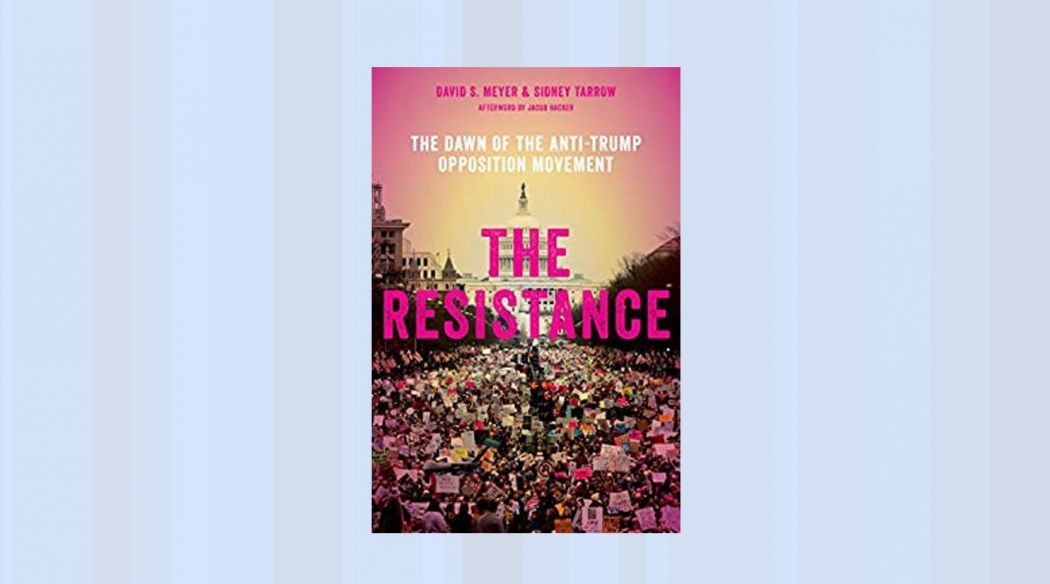
This book shows that what became recognised as the anti-Trump resistance movement began before Trump became president. In fact, the movement is a collection of movements, for racial and climate justice, for gender equality, for immigrants’ rights.
This book is a collection of eleven articles by an array of academics looking at these different elements and dimensions. It includes chapters by superstars of Resistance Studies such as Dana R. Fisher (whose own American Resistance is due out in August — here are draft chapters and an excellent blog) and Erica Chenoweth who, along with Marie Berry, discusses how they documented the turnout at the Women’s March.
